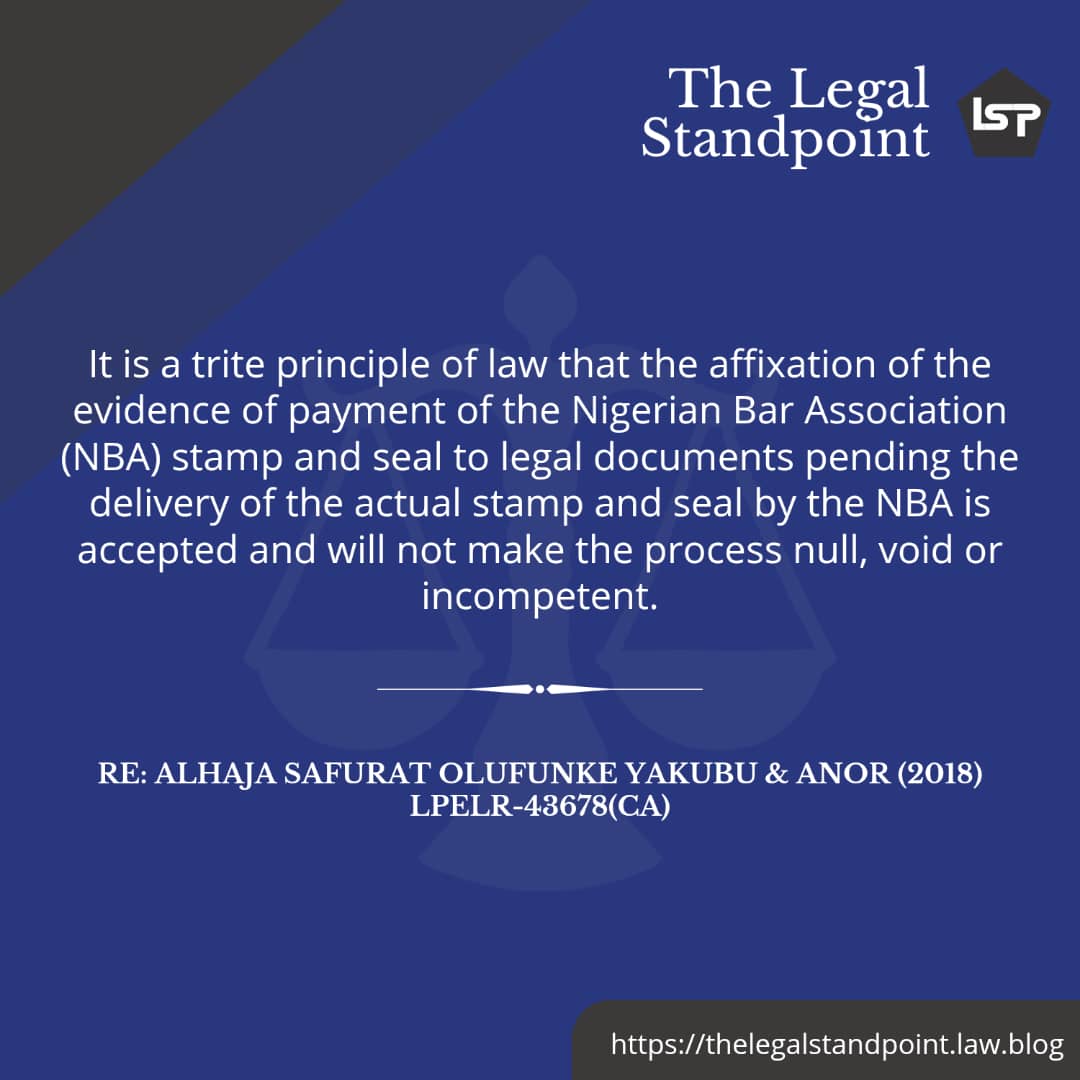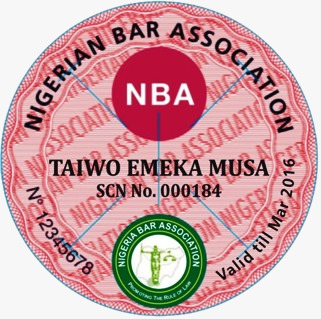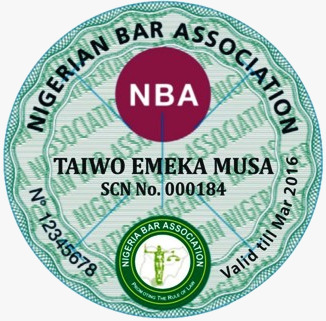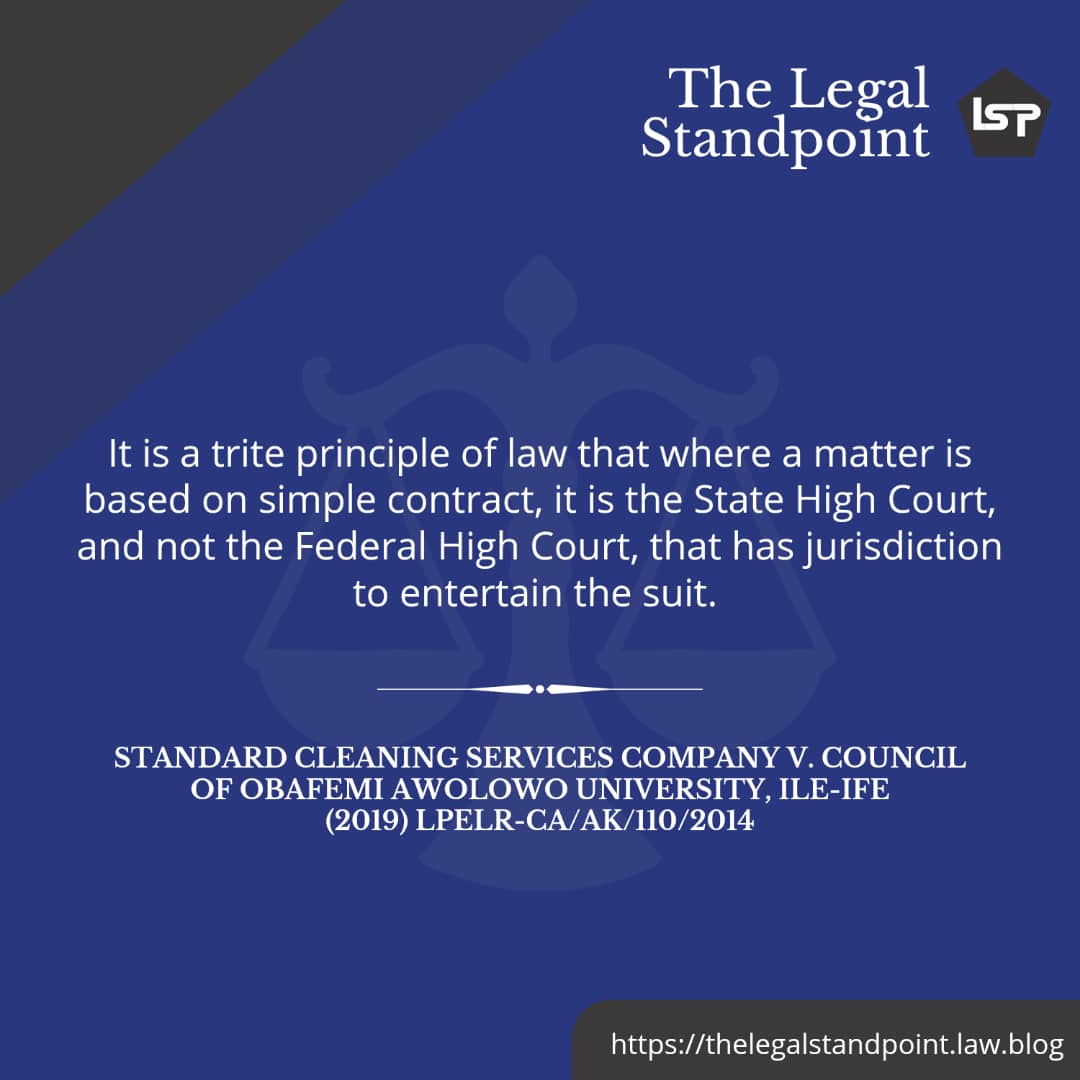
This week’s analysis discusses the effect of affixing proof of payment of Nigerian Bar Association stamp and seal on legal documents where the actual stamp and seal is not yet available.
In Law, Rule 10(1) and (2) of the Rules of Professional Conduct for Legal Practitioners, 2007, states that:
(1) A lawyer acting in his capacity as a legal practitioner, legal officer, or adviser of any Government department or ministry or any corporation, shall not sign or file a legal document unless there is affixed on any such document a seal and stamp approved by the Nigerian Bar Association.
(2) For the purpose of this rule, “legal documents” shall include pleadings, affidavits, depositions, applications, instruments, agreements, deeds, letters, memoranda, reports, legal opinions, or any similar documents.
Failure to comply with this requirement makes the document so signed or filed deemed not to have been properly signed or filed. Ss(3).
By necessary implication, the rationale for the requirement of the stamp and seal hinges on authenticity. It is meant to check and prevent the infiltration of quack lawyers in the Nigerian legal space and to ensure that legal practitioners who file processes in court have their names on the Roll of Legal Practitioners.
The use of the stamp and seal in the legal profession became mandatory from April 1st, 2015 following the resolution of the NBA NATIONAL EXECUTIVE COMMITTEE (NEC) meeting held on November 14th, 2014 at Uyo, Akwa Ibom State. An example of the NBA stamp is pictorially shown below. The red stamp is for those in the Public Practice while the green stamp, for those in the Private Practice.


Generally, the NBA stamp and seal is given to all lawyers upon the payment of the NBA dues. However, there are administrative lacunas where the delivery of the stamp and seal is scheduled for a later date despite paying the fees. What should then be the fate of the lawyer? wait, watch and lose a potential client? It cannot be. It shouldn’t be unless you want SAPA to score a-30 yard screamer.
Hence, there are plethora of judicial authorities which support the flexibility of Rule 10 by allowing the attachment of the NBA stamp and seal payment receipt as a substitute pending the delivery of the actual stamp and seal.
In Mutumutu v State, (2019) LPELR-CA/PH/17CR/2018, the Court per JOMBO-OFO held that: ‘regarding the question of use of receipt as evidence of payment for the NBA stamp/seal, it is my considered view that production of such evidence is as good as payment for the said NBA stamp/seal.’
Also, the Court of Appeal per Ogakwu, in Today’s Cars LTD v Lasaco Assurance PLC (2016) LPELR (41260) 1 at 5-7 gave an elaborated elucidation on this issue where he stated as follows: ‘Doubtless, there is no Nigerian Bar Association Stamp and Seal on the Appellant’s Brief. The Appellant has however submitted that its counsel has done all on its part to obtain the Seal and that the failure by the Nigerian Bar Association to issue the Seal should not be visited on the Appellant. The Appellant’s Brief was filed on 27th April 2016. Attached to the Appellant’s Brief is an Access Bank deposit slip showing that the Appellant’s counsel … paid for the Nigerian Bar Association Stamp in February 2016, a clear two months before the Appellant’s Brief was filed. Now, in these circumstances will it be in consonance with the dictates of justice for the Appellant’s brief to be said to infringe the provisions of Rule 10 of the Rules of Professional Conduct for Legal Practitioners, 2007, given the fact that the Appellant’s counsel has done all that is required of him in order to comply with the stipulation of the Rule. I think not. It is my considered view that having paid for the stamp and seal, all that remained was the domestic affair of the Nigerian Bar Association Secretariat and where like in this situation the Nigerian Bar Association Secretariat is tardy, such tardiness cannot be visited on the Appellant as all required to be done on the part of the Appellant’s counsel has been done.’
A similar decision was also held in OLUMIDE & ANOR v. AREMU & ANOR (2019) LPELR-CA/EK/83/2018; REDEEMED CHRISTIAN CHURCH OF GOD (HAGIAZO PARISH) v. AKADIRI & ANOR (2019) LPELR-CA/L/1242/2015, MESHACK v. STATE (2019) LPELR-CA/PH/18CR/2018, etc
Furthermore, the absence of the NBA stamp and seal on a legal document will not be treated as being vital to the case so as to lead to striking out of the case. An attempt to do such would amount to sacrificing substantial justice at the altar of technicality. In Yaki v Bagudu (2015) LPELR (26721) 1 at 6-7 the Supreme Court held that a legal document signed and/or filed without complying with Rule 10 (1) is not null and void or incompetent. This principle is further reiterated by Kekere Ekun, JSC in the case of Nyesom v Peterside & Ors (2016) LPELR-SC.1002/2015 where the learned justice opined that: With regard to the lack of NBA stamp and seal on the petition, I refer to the recent decision of this Court in Gen. Bello Sarkin Yarki v. Senator Abubakar Atiku Bagudu in SC.722/2015 delivered on 13/11/2015 when this Court held that the failure to affix the approved seal and stamp of the NBA on a process does not render the process null and void. It is an irregularity that can be cured by an application for extension of time and a deeming order.’
In conclusion, the presentation of the evidence of payment for the NBA stamp and seal in lieu of the actual stamp and seal will fulfill the requirement of Rule 10(1) of the Professional Conduct for Legal Practitioners 2007.
Kindly subscribe to the blog’s email subscription below. Thank you for reading. See you next week.❤


